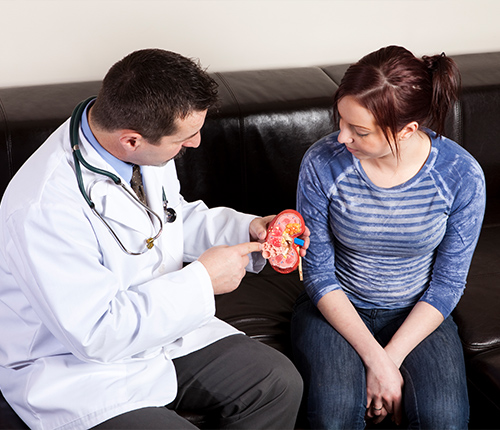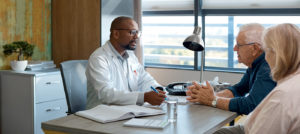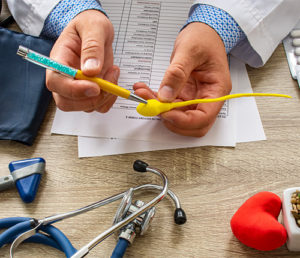By David Bryan, MD
My patients describe kidney stones as more painful than childbirth. Considering that kidney stones can vary in size from a grain of salt to a golf ball, it’s not surprising that some patients experience extreme pain. As the humidity and heat rise, we see an increase in patients seeking treatment and care for kidney stones. One in ten people deal with kidney stones at some point in their lives, and extreme heat can often be a contributing factor to this painful condition.
As a resident in the Metro East and St. Louis area, you might be surprised to learn that St. Louis is located in what’s commonly referred to as the ‘Stone Belt,’ which means kidney stones are more common in this region of the country. Stretching across specific areas of the United States, this belt encompasses regions where kidney stone rates are disproportionately high. Residents in the ‘Stone Belt’ are more susceptible to developing kidney stones because of a combination of warmer weather, which causes people to become dehydrated, and a high salt diet.
Other than weather and geography, lifestyle choices make a big difference in preventing kidney stones. At Urology of St. Louis, we’re raising awareness about how to reduce your risk, symptoms to watch out for and treatments that are available.
Prevention
As an experienced urologist, I would like to emphasize the importance of taking preventative measures to avoid kidney stones. Hydration becomes increasingly important during the hot summer months when I see an increasing number of patients suffering from kidney stones. Maintaining a healthy intake of water and ensuring that urine maintains a pale-yellow hue is a tangible indication of proper hydration.
To prevent the formation of kidney stones, it is essential to prioritize self-care and make conscious dietary choices. In addition, adopting a diet that is low in sodium and rich in citric acid, found in fruits, can play a significant role in preventing kidney stones. This approach not only serves as a deterrent against kidney stones but also contributes to the overall well-being and health of your kidneys.
Symptoms
As a physician, I’ve observed that kidney stone symptoms can encompass a range of discomforts. Patients often report experiencing sharp pain in the abdominal or lower back area, accompanied by fever, chills, and nausea. Blood in the urine and increased urination frequency are also common indicators. Recognizing these signs is crucial for timely intervention and effective management of kidney stone cases.
Treatments
If you are experiencing fever/chills, sharp pain or any nausea, call our Stone Center. We can get you in that same day and save you the hassle of waiting in an emergency room. USL’s The Stone Center provides rapid access to care, virtual same-day appointments and procedures within 24 hours, and prompt kidney stone diagnosis. Using cutting-edge therapies tailored to your particular needs, we will develop an effective treatment strategy.
To learn more about The Stone Center or book an appointment, go to stlurology.com/kidney-stone-doctor-st-louis or call 800-NO-STONE (800-667-8663)





